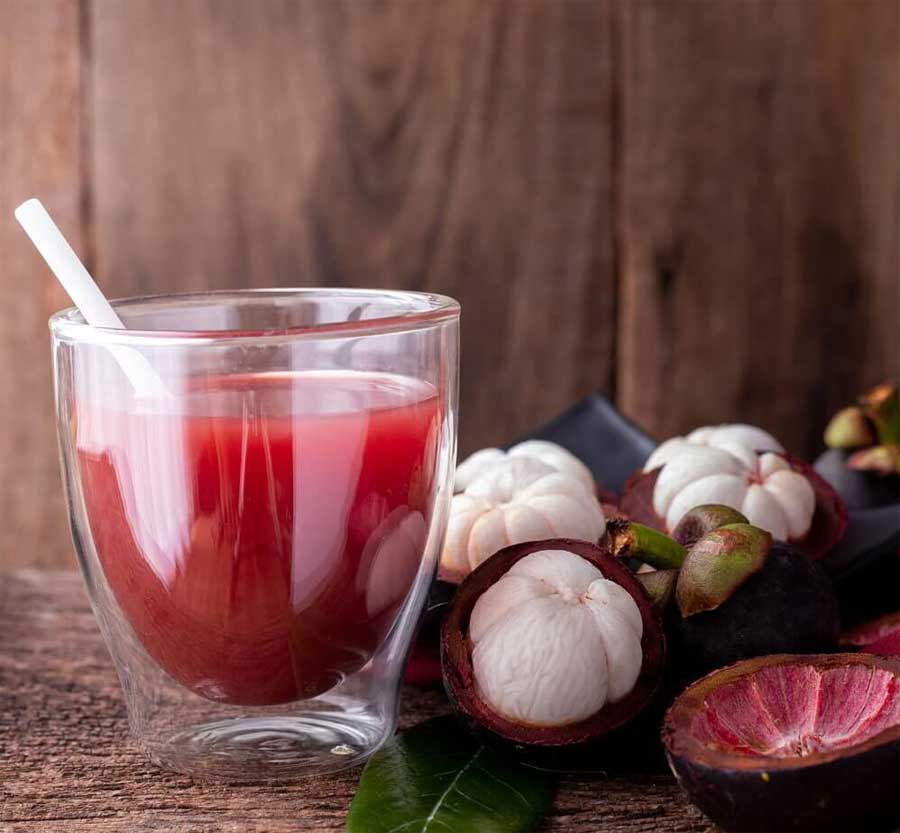Welcome to the world of clover sprouts – A tiny but mighty superfood that packs a powerful punch in terms of nutrition and health benefits. These tiny sprouts are a delicious addition to any meal, but they also have a wealth of health benefits that make them an excellent choice for anyone looking to improve their overall wellbeing. Incorporating clover sprouts into your diet is an easy and affordable way to boost your health, and in this article, we’ll explore why.
From reducing inflammation to improving cardiovascular health and supporting digestive health, clover sprouts are a versatile and nutrient-dense food that can enhance your overall health in myriad ways. They’re packed full of vitamins, minerals, and antioxidants, making them an excellent choice for anyone looking to boost their nutrient intake and support their body’s natural processes. Whether you’re a health enthusiast or simply looking for a tasty addition to your meals, you won’t want to miss out on the many health benefits of clover sprouts!
What are Clover Sprouts?

Clover sprouts are young, edible plants that come from the clover plant family, known scientifically as Trifolium. These sprouts are typically eaten raw and are a popular addition to salads, sandwiches, and wraps. They have a mild, slightly sweet taste and a tender texture that is similar to alfalfa sprouts. Clover sprouts are highly nutritious and offer numerous health benefits when added to a healthy diet.
Nutritional Value of Clover Sprouts
Clover sprouts are a highly nutritious food that can provide numerous health benefits. These sprouts are rich in vitamins, minerals, and antioxidants that support overall health and wellbeing. Incorporating clover sprouts into your daily diet can be an easy and delicious way to boost your nutrient intake.
Nutrients Found in Clover Sprouts
Clover sprouts are a good source of many essential vitamins, including vitamin C, vitamin K, and vitamin A. These vitamins are important for maintaining healthy skin, vision, and immune function. Clover sprouts are also a rich source of minerals such as calcium, iron, and magnesium, which are essential for strong bones and proper muscle function.
In addition, clover sprouts contain a range of antioxidants, including flavonoids and phenolic acids. These antioxidants help protect the body against damage caused by free radicals, which can contribute to chronic diseases such as cancer and heart disease.
How These Nutrients Support Health
Vitamins and minerals play important roles in the body, supporting numerous systems and functions. For example, vitamin C supports immune function and helps the body absorb iron, while vitamin A is essential for healthy vision and skin. Minerals such as calcium and magnesium are important for strong bones and muscles.
Antioxidants also play a crucial role in maintaining health. By neutralizing free radicals, they help prevent cellular damage and reduce the risk of chronic diseases. Studies have found that a diet rich in antioxidants may help reduce the risk of cancer, heart disease, and other conditions.
Overall, the nutrients found in clover sprouts offer a wide range of health benefits. Incorporating these sprouts into your diet can help support overall health and wellbeing.
Clover Sprouts and Inflammation
Inflammation is the body’s response to injury or infection, but chronic inflammation can have negative effects on overall health. The good news is that clover sprouts can help reduce inflammation in the body. Research has shown that clover sprouts contain compounds that have anti-inflammatory properties.
How do clover sprouts reduce inflammation?
The active compounds found in clover sprouts include flavonoids, antioxidants, and saponins. These compounds have been shown to reduce inflammation by inhibiting the production of inflammatory molecules in the body. Additionally, clover sprouts have been shown to activate white blood cells, which helps to control inflammation by regulating the immune response.
Conditions that may benefit from consuming clover sprouts
Studies have suggested that consuming clover sprouts regularly may help reduce inflammation and improve symptoms in conditions such as arthritis, asthma, and inflammatory bowel disease. This is due to the anti-inflammatory properties of the compounds found in clover sprouts.
If you suffer from chronic inflammation, incorporating clover sprouts into your diet may be a simple, natural way to help manage your symptoms.
Clover Sprouts and Digestion
Aside from being a nutrient-dense addition to your diet, clover sprouts may also support digestive health. The fiber content in clover sprouts helps to promote regular bowel movements and prevent constipation. Additionally, the enzymes present in clover sprouts may help to break down food more effectively, reducing bloating and discomfort after meals.
Incorporating clover sprouts into your diet is easy and delicious. Add them to salads, sandwiches, or wraps for a refreshing crunch. Try tossing them in a stir-fry or adding them to your morning omelet.
If you’re looking to specifically target digestive issues, try blending clover sprouts into a smoothie with other digestion-boosting ingredients like ginger, pineapple, and spinach.
Clover Sprouts and Cardiovascular Health
Clover sprouts can play a significant role in improving cardiovascular health. Studies suggest that consuming clover sprouts can help lower cholesterol levels, which is a significant contributor to heart disease. Clover sprouts also contain compounds that improve blood pressure, reducing the risk of hypertension and stroke.
Lowering Cholesterol Levels
Clover sprouts contain compounds that reduce cholesterol levels. One study found that consuming clover sprouts reduced total cholesterol levels by 17%. Another study showed that clover sprouts reduced low-density lipoprotein (LDL) cholesterol levels by 20%. These cholesterol-lowering effects are thought to be due to the sprouts’ high content of antioxidants and dietary fiber.
Improving Blood Pressure
Clover sprouts contain compounds that improve blood pressure. These compounds work by relaxing blood vessels and increasing blood flow, reducing the risk of hypertension and stroke. One study found that consuming clover sprouts for eight weeks reduced systolic blood pressure (the top number in a blood pressure reading) by 5.2 mmHg and diastolic blood pressure (the bottom number) by 3.5 mmHg.
How Much to Consume
- To enjoy the cardiovascular benefits of clover sprouts, it is recommended to consume them regularly as part of a balanced diet.
- It is recommended to consume around one cup of clover sprouts per day.
Incorporating clover sprouts into your diet can be easy and delicious. Try adding them to salads, sandwiches or smoothies to boost your cardiovascular health in a tasty way.
Clover Sprouts and Immune Health
Clover sprouts are not only delicious, but they also offer several health benefits, including supporting immune health. This is due to their high antioxidant content, specifically isoflavones, which have been shown to boost the activity of immune cells.
Research has also shown that clover sprouts contain antibacterial and antiviral properties, helping to protect against infections and illnesses. By incorporating clover sprouts into your diet, you can help strengthen your immune system and protect your body against harmful pathogens.
Can clover sprouts prevent the common cold?
While there is no cure for the common cold, consuming clover sprouts may help prevent it altogether. The immune-boosting properties of clover sprouts can help protect against cold-causing viruses, reducing your risk of getting sick.
Can clover sprouts help with autoimmune disorders?
While more research is needed, some studies suggest that the antioxidant and anti-inflammatory properties of clover sprouts may be helpful in managing symptoms of autoimmune disorders. This is because clover sprouts may help reduce inflammation and oxidative stress in the body, which can contribute to the development and progression of autoimmune diseases.
Incorporating clover sprouts into your diet can be a tasty and easy way to support your immune health. Try adding them to salads, sandwiches, and wraps, or even blend them into smoothies for a nutritious and delicious boost.
Clover Sprouts and Your Diet: Tips for Incorporating Them Into Your Daily Routine
Now that you know about the amazing health benefits of clover sprouts, you’re probably wondering how to incorporate them into your diet. Luckily, there are many easy and delicious ways to enjoy these nutritious sprouts!
1. Add Clover Sprouts to Your Salad
Clover sprouts make a great addition to any salad, adding a fresh, crunchy texture. Simply rinse and dry the sprouts, then mix them into your favorite salad greens.
2. Top Your Sandwich or Wraps with Clover Sprouts
For a nutritious and satisfying lunch, add clover sprouts to your sandwiches or wraps. They pair well with a variety of ingredients, from sliced turkey to avocado and hummus.
3. Blend Clover Sprouts into Smoothies
Clover sprouts can be easily incorporated into smoothies, adding a boost of nutrients. Simply blend them in with your favorite fruits and veggies for a refreshing and nutritious drink.
4. Use Clover Sprouts as a Garnish
If you’re looking for a simple way to add some visual appeal to your dishes, try using clover sprouts as a garnish. They pair well with a variety of dishes, from soups to stir-fries.
5. Store Your Clover Sprouts Properly
To ensure that your clover sprouts stay fresh and flavorful, store them in a sealed container in the refrigerator. They should last for up to a week when stored this way.
6. Experiment with Clover Sprout Recipes
If you’re feeling adventurous, try experimenting with clover sprout recipes. From omelets to quiches, there are many ways to incorporate these nutritious sprouts into your meals.
- Try adding clover sprouts to your morning omelet for a nutritious breakfast.
- Add them to your homemade stir-fry for a fresh and crunchy texture.
- Blend them into your favorite hummus recipe for a nutritious dip.
By incorporating clover sprouts into your daily diet, you can enjoy the many health benefits they have to offer. So why not give them a try today?
Check out more:
– Air Fryer Brussels Sprouts Recipe, Crispy and Delicious!
– 10 Amazing Benefits Of Alfalfa Sprouts
– Balsamic Roasted Brussels Sprouts Salad
Frequently Asked Questions about Clover Sprouts
Q: Are clover sprouts safe to eat?
A: Yes, clover sprouts are safe to eat as long as they are properly cleaned and handled. It’s important to purchase sprouts from a reputable source and to store them in the refrigerator until you’re ready to eat them.
Q: How much clover sprouts should I consume?
A: The amount of clover sprouts you should consume depends on your individual dietary needs. As a general guideline, aim to incorporate a small amount of sprouts into your meals several times a week.
Q: Where can I purchase clover sprouts?
A: You can often find clover sprouts at health food stores, specialty markets, and some grocery stores. You can also purchase them online from a variety of retailers.
Q: Can clover sprouts help with weight loss?
A: While there is no magic food that can guarantee weight loss, clover sprouts can be a nutritious addition to a healthy diet. They are low in calories and high in fiber, which can help you feel fuller for longer periods of time.
Q: How should I store clover sprouts?
A: To keep clover sprouts fresh, store them in a closed container in the refrigerator. It’s also a good idea to rinse them before eating to remove any dirt or bacteria.
Q: Can clover sprouts be used in cooking?
A: Yes, clover sprouts can be used in a variety of dishes, including sandwiches, salads, wraps, and stir-fries. They add a fresh, crunchy texture and a slightly sweet flavor.
Q: Do clover sprouts have any side effects?
A: While clover sprouts are generally safe to eat, some people may experience side effects such as bloating, gas, or an upset stomach. If you have any concerns about how your body reacts to clover sprouts, speak with your healthcare provider.














